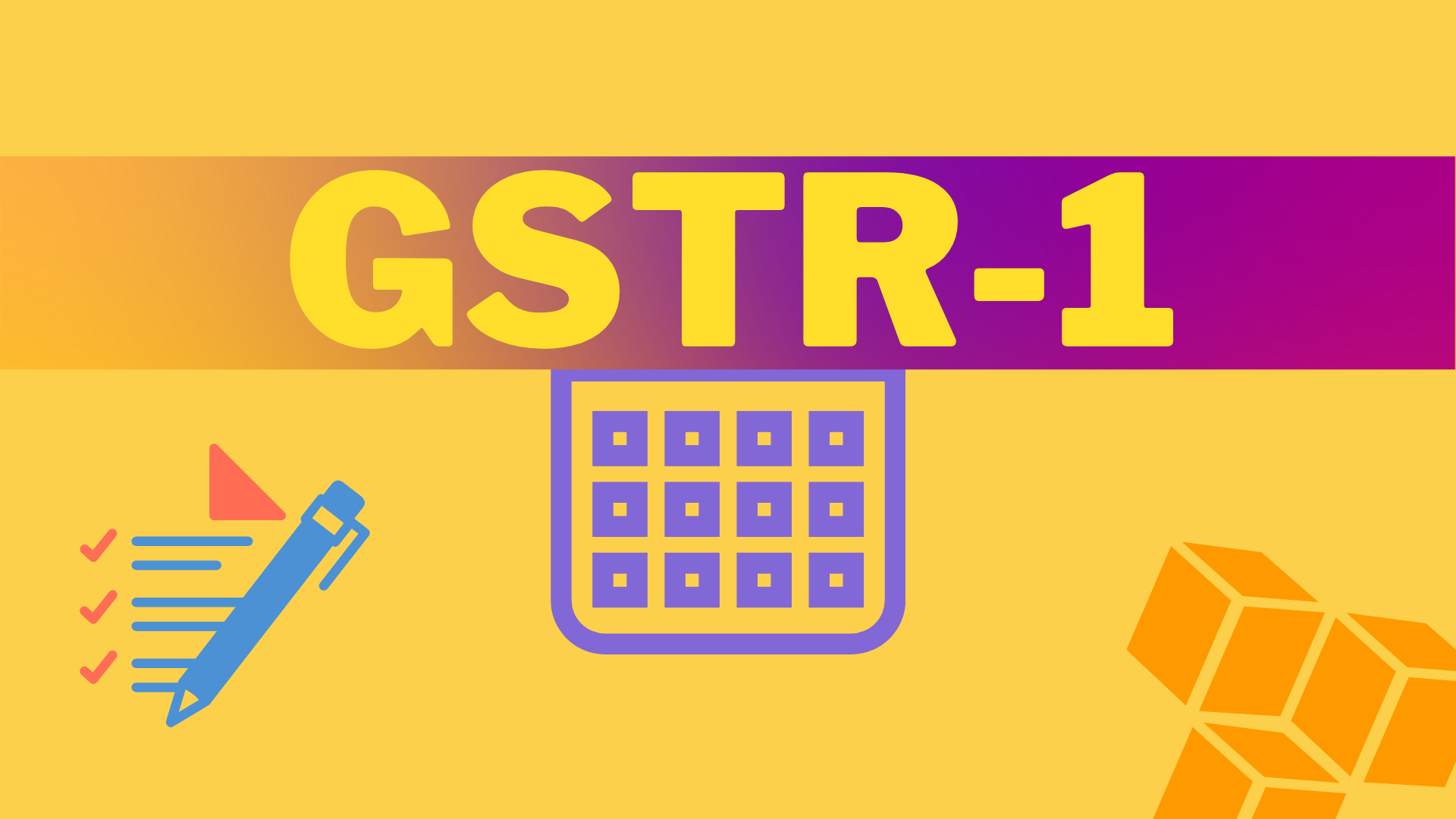Facing difficulty in calculating GST late fees? You’ve landed at the right place. Here, you will find all the key information related to GST late fee and how to calculate it. Read on to know more about it.

According to the GST law, the amount charged for delay in filing the GST returns is known as late fees. A certain amount of late fees will be charged for each day of the delay. This generally happens when a GST registered business fails to file the GST returns within the stipulated time.
The late fee needs to be paid in cash and input tax credit present in the electronic ledger cannot be utilized for payment of the late fees.
If there is a delay in filing nil returns, a late fee is applied even then. For example, even if there is no sales or purchase and no GST liability to declare in GSTR-3B, still late fee is applicable.
The amount of late fees will depend on the number of days of delay from the due date. In the present scenario, the GST portal is liable to charge late fees only on returns of the following:
- GSTR-3B
- GSTR-4
- GSTR-5
- GSTR-5A
- GSTR-6
- GSTR-8
- GSTR-7
- GSTR-9
Amount of Late Fees Applicable
According to the 43rd Indian GST Council meeting’s result, there has been a reduction in the maximum late fee according to the type of return and turnover slab. This has been notified through the CGST notifications 19/2021, 20/2021 dated 1st June 2021 for GSTR-3B and GSTR-1.
- If you have been trapped in the case of GSTR-1 and GSTR-3B filing, then a maximum of Rs.500 per return (i.e Rs. 250 each for CGST & SGST) will be charged.
- In the cases other than nil filing in GSTR-1 and GSTR-3B, the maximum late fee is fixed based on the annual turnover slab, as follows:
- In case the annual turnover of the last financial year amounts to up to Rs.1.5 crore, then a of maximum Rs 2,000 per return late fee can only be charged (that implies Rs.1000 each for CGST and SGST).
- In case turnover is between Rs.1.5 crore and Rs.5 crore, then the maximum of Rs.5,000 per return late fee can only be charged (i.e Rs. 2500 each for CGST and SGST).
- In case, the turnover is greater than Rs.5 crore, then a maximum of Rs.10,000 (i.e., Rs. 5000 per CGST and SGST) can be charged as late fees.
In addition to this, the late fee has been improvised if there is a delay in filing of GSTR-4 from the Fiscal Year 2021-22, through the CGST notification 21/2021 dated 1st June 2021. The maximum late fee is limited to Rs.500 per return for nil filing whereas it is kept Rs. 2000 for other than nil filing.
Based on CGST notification 22/2021 dated 1st June 2021, it has been stated that the late fee charged for GSTR-7 i.e., TDS filing under GST will be Rs. 2,000 maximum while late fee per day charged has been reduced from Rs.200 to Rs.50 per day of delay, per act, per return.
Late fee computation for GSTR-3B and GSTR-1
Based on the GST Act, the late fee needs to be paid under both the CGST and SGST Act for intrastate supplies. Take a look:
According to the law, a maximum late fee of Rs 10,000 has been fixed up to May 2021. This implies that the Government can charge a maximum of Rs 5000 for each return being filed under each Act.
However, the maximum late fee has been improvised from the June 2021 return period onwards, as provided in the above-mentioned section.
The Nil return filers have to pay the below mentioned late fee:
For GSTR-1 and GSTR-3B, the maximum late fee has been improvised from the June 2021 return period onwards, as given in the above section.
For example, if a Taxpayer has filed GSTR-3B for the month of December 2020 on 24th January 2021, when the actual due date was 20th Jan 2021.
Then the amount of late fees to be paid would be Rs.200 (Rs. 50 per day for 4 days). The late fee would be Rs.100 under CGST and Rs.100 under SGST.
If it was a return with ‘Nil’ tax liability, then late fees would have been Rs. 80 (20 per day 4 days). The late fee would be Rs.40 under CGST and Rs.40 under SGST.
* The original late fee was Rs.100 per day under each CGST Act and SGST Act. Under CGST Act and SGST Act, the original late fee for Nil return filers was Rs.25 per day. However, late fees have been reduced in order to provide relief to the businesses that face difficulties in GST return filing.
For GST Annual Returns (GSTR-9)
According to the law, the maximum late fee will be calculated at 0.25% of the turnover for the financial year.
Up-to-date List of late fee notifications
Let’s take a look at the changes that have been incorporated on the applicability of the late fees:
GSTR-1
GSTR-3B
GSTR-4 (Annual)
GSTR-4 (Quarterly)
GSTR-6
Note: The important point to note is that returns including GSTR-7, GSTR-8, GSTR-5A, or GSTR-9 will have late fees applicable to them as per the Act at a normal fee.
** If the amount is paid before the waiver, it will be credited to the electronic cash ledger for use. This amount can be paid against the tax liability.
^The previous notification 6/2018 was cancelled prospectively.
How to Deposit Late fees with the Government?
While submitting the GST returns, the late fee that is applicable will automatically be calculated by the GST portal.
You are required to pay the late fee in cash separately for CGST, and SGST in separate electronic cash ledgers. Also, you cannot file the GST return without paying the late fee.
If you want to calculate the late fee for the month, then the previous month’s late fee charged due to delay in return filing, will also be included. Also, interest will be added in case of non-payment or late payment of GST.
Interest under GST & Calculation
Interest will be implied on late payment of GST liability on the net tax liability on reducing the input tax credit claims. The interest needs to be paid by the taxpayer who meets the following conditions:
- Makes a delayed GST payment i.e., pays CGST, SGST, or IGST once the due date is over.
- Claims excess input tax credit
- Reduces excess output tax liability
In case GST is not paid within the stipulated time i.e. the due date of filing return, you need to pay the interest at the following rates:
* Owing to the COVID-19 pandemic, interest has been reduced for various periods.
The interest has to be calculated from the next day from the due date.
For example, a taxpayer does not make a tax payment of Rs. 10,000 for the month of December 2020, when 20th January 2021 was the due date. If he makes the payment on 20th March 2021, the interest for the delay period (61 days: from 21st January till 20th March) will be calculated as follows:
Rs.10,000 * 61/365 * 18% = Rs.300.82
Thus, it is vital to do tax payments and file GST returns within the due dates. Otherwise, it can result in late fees and penalties.
How can Deskera help you in your business?
Deskera Books is a time-saving strategy for managing your work contacts, invoicing, bills and expenses. You can also import opening balances and set up chart accounts through it.
Deskera Books is software that enables you to generate e-Invoices for Compliance with the Indian jurisdiction. It lets you easily create e-invoices by clicking on the Generate e-Invoice button.
A quick video tour will help you get a better understanding of the entire process in a few minutes.
Now that you have Deskera, you can easily manage your journals. A single interface gives you access to all remarkable features, including the ability to add products, services, and inventory.
You can automatically generate and send invoices using this accounting software. Further, creating financial statements has become considerably easier thanks to the software, which lets you draft balance sheets, income statements, profit and loss statements, and cash flow statements.
GST and the process related to this can turn out to be troublesome for most people. This is where Deskera can help you. With Deskera blogs, you can understand the topics such as GSTR1, GSTR2A, GSTR2B, GSTR3B, etc. in a better manner.
You can even manage your business contacts, invoicing, bills, and expenses with Deskera Books. Not only this, you can even import opening balances and create chart accounts through it.
No matter where you are based, Deskera books will handle all your core business tasks with much ease. With Deskera Books by your side, you can say goodbye to all your accounting troubles.
Key Takeaways
- Based on the GST law, the amount charged for delay in filing the GST returns is known as late fees. A certain amount of late fees will be charged for each day of the delay. This generally happens when a GST registered business fails to file the GST returns within the stipulated time.
- The amount of late fees applicable depends on the number of days of delay and the type of return filed
Related Links










